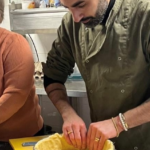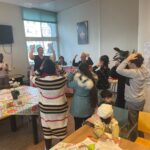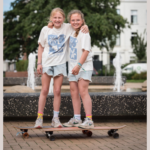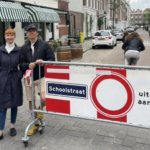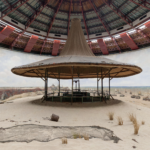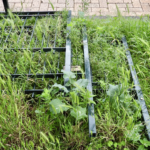(Op uw) Gezondheid!
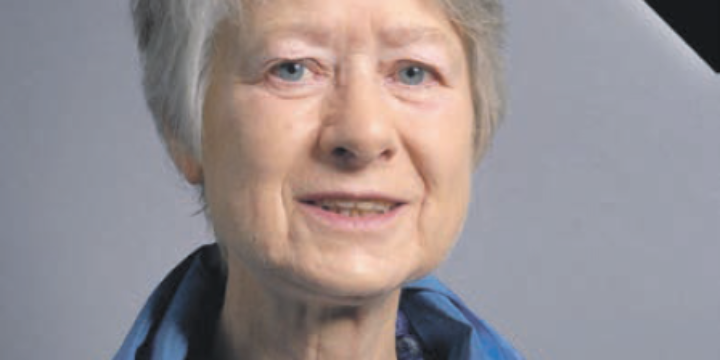
Aflevering 6 (slot): de stem van de patiënt
(English below)
TEKST EN FOTO PETER BAKENS
Na vijf afleveringen met zorgverleners in de hoofdrol, eindig ik deze serie graag met de patiënt aan het woord. Patiënten/cliënten(mede)zeggenschap is een groot goed in onze gezondheidszorg. Er komt gelukkig steeds meer aandacht voor het verhaal, de wensen en voorkeuren van de ontvanger van zorg. Talrijk is het aantal specifieke patiënten/cliëntenorganisaties, je zou bijna kunnen zeggen ‘je kunt het zo gek niet verzinnen of er is een organisatie voor’. Kijkt u maar eens naar de website van de koepelorganisatie ‘Ieder(in) iederin.nl/onze-leden/ ’, of checkt u de website van de Patiëntenfederatie Nederland patientenfederatie.nl/onze-leden.
Recent werd met een wat teleurstellend resultaat de landelijke campagne ‘Samen beslissen’ afgesloten. De campagne riep zorgverleners en patiënten op beter met elkaar samen te werken: zie voor een aantal resultaten de website https://begineengoedgesprek.nl/. Veel (landelijke) aandacht dus voor de positie van de patiënt, maar er is nog werk aan de winkel.
Uiteraard blijven we voor onze serie binnen de grenzen van het Zeeheldenkwartier, en daar vinden we Veronica van Nederveen uit de van Speijkstraat, voorzitter en secretaris van de Stichting Patiëntenstem.nu: patientenstem.nu.
Veronica (sociologe) werkte in de hoogste regionen van het ministerie van Volksgezondheid, Welzijn en Sport. Daar was zij o.a. een aantal jaren verantwoordelijk voor financiële aspecten van onze gezondheidszorg. Wat kost een bepaalde operatie, wat mag een consult van de huisarts kosten, etc. Ze wilde zich na haar pensionering gaan inzetten voor patiëntenbelangen en richtte in 2015 met twee anderen, de stichting Patientenstem.nu op. Veronica: “Wij wilden en willen dat de stem van de patiënt veel meer leidend wordt op drie plaatsen: bij de (individuele) behandeling, in het onderzoek én in het beleid. En om de urgentie daarvan te onderstrepen kozen we voor ‘.nu’ als extensie van onze domeinnaam: de stem van de patiënt moet doorklinken, niet straks maar NU!”.
Veronica is naast voormalig invloedrijk ambtenaar ook ervaringsdeskundige. Op haar 49ste blijkt ze borstkanker te hebben en moet haar werk voor een jaar loslaten. Haar persoonlijke ervaring met de wereld van de zorg speelt zeker mee in haar werk in de stichting. Veronica benadrukt: “Patiënten mogen zich veel meer als ‘klant’ opstellen in o.a. de spreekkamer. Kijk hoe in de industrie of commercie de eindgebruiker serieus wordt genomen. Waarom zou je in de gezondheidszorg minder goed naar je patiënt, de eindgebruiker, luisteren?”
De Nederlandse commandant Jan van Speijk (1802-1831 ‘Dan liever de lucht in’!) verkreeg een heldenstatus doordat hij zijn schip de lucht in liet vliegen om te voorkomen dat het vaartuig in vijandelijke handen kwam. Eenzelfde passie en onverzettelijkheid tref ik aan bij onze Zeeheldin Veronica van Nederveen. Onverzettelijk bij de verwezenlijking van haar ideaal: een gelijkwaardige positie van de patiënt in het complexe krachtenspel van de gezondheidszorg. Het is mooi om onze serie met een citaat van haar af te sluiten:
“De gezondheidszorg wordt mooier en beter als we de patiënt tot leidend, in plaats van lijdend voorwerp kunnen maken. En daar heeft iedere patiënt zelf z’n rol in te spelen. Niet door met de vuist op tafel te slaan of ander ongewenst gedrag (waarover bijvoorbeeld huisarts Storm de Grave in aflevering #3 in Zeeheldennieuws #4 vertelde-red), maar door ‘gewoon’ op te komen voor jezelf, te verwachten dat er goed naar je geluisterd wordt, door aandacht te vragen voor je wensen en verwachtingen. Dat begint bij een volwassen houding van de patiënt zelf. En onze stichting helpt een handje door hier ook aandacht voor te genereren in onderzoek en beleid”.
(Veel) meer lezen over de stichting en haar activiteiten: zie patientenstem.nu.
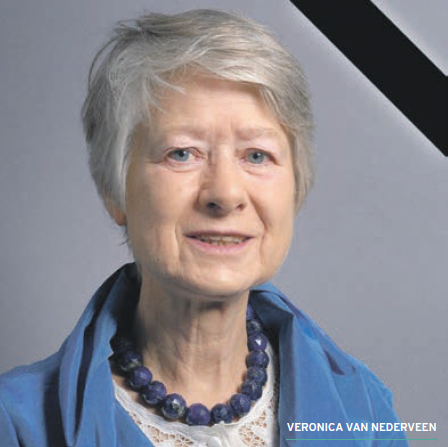
(TO YOUR) HEALTH!
ISSUE 6 (CONCLUSION): THE VOICE OF THE PATIENT!
TRANSLATION CINDY HOCK
After five issues starring healthcare providers, I like to end this series by giving patients the floor. Patient/ client (shared) control is a key asset in our healthcare system. Fortunately, increasingly more attention is being paid to the story, requirements, and preferences of the healthcare recipient. The number of specific patient/client organisations is numerous; you could almost say ‘you cannot think of anything or there is an organisation for it’. Just take a look at the website of the umbrella organisation ‘Ieder(in)’ (iederin.nl/ourmembers), or check the website of the Dutch Patients Federation (patientenfederatie.nl/our-members).
Recently, the national ‘Deciding Together’ campaign has concluded with a somewhat disappointing result. The campaign called on healthcare providers and patients to better work together: for some results, go to the website begineengoedgesprek.nl. Thus, there is a great deal of (national) attention for the position of the patient, but there is still work to be done.
Of course, we stay within the confines of the Zeeheldenkwartier for our series, and that is where we find Veronica van Nederveen from the Van Speijkstraat, chair and secretary of the Patiëntenstem.nu Foundation (patientsstem.nu).
Veronica (sociologist) worked in the highest echelons of the Ministry of Health, Welfare and Sport. She has been responsible for, among other things, the financial aspects of our healthcare system for a number of years. What does a certain operation cost, what is a GP consultation allowed to cost, etc. After her retirement, she wanted to get involved in patient advocacy and in 2015 she founded, in association with two others, the Patientstem.nu foundation. Veronica: “We wanted and want the voice of the patient to become much more prominent in three areas: in (individual) treatment, in research, and in policy. And to underline the urgency of this, we chose ‘.nu’ (i.e. ‘.now’) as the extension of our domain name: the voice of the patient must be heard, not shortly but NOW!”.
In addition to being a former influential civil servant, Veronica is also an experiential expert. At 49, she was diagnosed with breast cancer and had to give up her job for a year. Her personal experience of the world of healthcare certainly plays into her work in the foundation. Veronica stresses, “Patients should be more inclined to act as ‘customers’ in the consulting room, among other places. Look how in industry or commerce the end user is taken seriously. In healthcare, why should you listen any less to your patient, the end user?”.
The Dutch commander Jan van Speijk (1802-1831, “I’d rather be blown up!”) achieved hero status for allowing his ship to be blown up into the air to prevent it from falling into enemy hands. I find the same passion and intransigence in our Zeeheldin Veronica van Nederveen. Unyielding in the realisation of her ideal: an equal position of the patient in the complex interplay of forces in the healthcare system. It is fitting to conclude our series with a quote from her:
“Healthcare becomes more attractive and better if we can turn the patient into the guiding, rather than the suffering object. And every patient has a role to play in this. Not by banging their fist on the table or any other undesirable behaviour (which, for instance, GP Storm de Grave talked about in issue #3 in Zeeheldennieuws #4-ed), but by ‘simply’ standing up for themselves, expecting to be listened to properly, by asking attention to be paid to their requirements and expectations. That starts with a mature attitude from the patient themselves. And our foundation lends a hand by also generating attention to this in research and policy”.
To read (much) more about the foundation and its activities go to patientenstem.nu.


